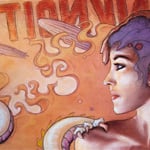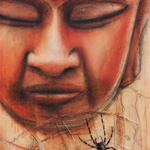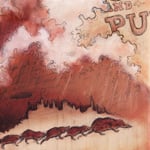In this series Ken Wilber explores some of humanity’s most profound and perennial questions: Is there a God? What is the meaning of life? What is consciousness? These are questions that we humans have been asking since the dawn of humanity; questions that have inspired history’s greatest philosophers, sages, and scientists; questions that have in many ways influenced the overall shape and scope of civilization over the millennia. We continue to ask ourselves these questions today—often beginning in childhood, and then again and again throughout the rest our lives. Although these questions are in many ways unanswerable, our attempts to answer continue to come closer and closer to the inexpressible truth as our understanding of the universe (and our place within it) continues to unfold and evolve.
Welcome to Big Questions with Ken Wilber, bringing more clarity, more sophistication, and more elegance to our understanding of life, the universe, and everything.
All text transcribed from live interviews with Ken Wilber.
There are so many different ways to answer that, and of course there are so many different answers that have been given over the decades, centuries, and millennia. It’s probably the ultimate human question.
The simplest answer is that the meaning of life is to realize ultimate unity, to realize the ultimate Ground of Being, to realize, in a direct immediate experience, Godhead or Spirit or Brahman or Tao. And that stands as a unique meaning among all the various meanings that have been offered, because many meanings are referred to what the traditions would call “relative truth”—they can go from fairly low life meanings to fairly noble meanings, but they’re all relative. And so it can go from “the meaning of life is to make as much money as you can,” or “to be as famous as you can,” or “to get as much power as you can.” Then, moving up a little higher, “the meaning of life is to find love and have love as an overpowering force in your life,” “to find meaning in general—to discover a particular value or a series of values that you find very important and that add meaning to your life and add a grace and joy to your life.” And these include everything from belongingness all the way up to group identities and finding a community that shares your values. And then there’s the idea that the meaning of life is to increase your knowledge, and therefore to become more educated and to learn more and more about the world itself. All of this is going to expand your psyche and even your soul, and yet all of those are still relative truths—they come into being, they exist in time for a particular period, and then they disappear.
But for traditions that divide truth into two truths, “relative truth” and “ultimate truth”, those are all relative. Ultimate truth is essentially very simple and similar however it appears, although the wording can vary a little here and there. It is to discover and to find the ultimate reality of life, the ultimate Ground of All Being, the ultimate is-ness or thusness or suchness of all reality, the goal and the source of all manifestation itself. But whatever it is, it’s an absolute: it’s absolute being, absolute consciousness, absolute happiness, absolute joy. It is a timeless realization. It’s the discovery of that reality which is so all-pervasive and all-pervading that it is ever-present in your own awareness. And so you can’t really accomplish it or achieve it or reach it, you can only recognize it.
So this recognition of ultimate reality becomes the primary goal or aim or meaning of life in any sort of ultimate sense. And the trick about this, unlike all of the relative meanings, truths, goals, and values, is that you can achieve all of the relative aims and goals and purposes in life and so on—if you want to have more belonging in your life, you can simply go out and start making friends and looking for loved ones and practicing expanding community; if you want more self-actualization you can take up workshops and you can go to a fairly self-actualized state. But when you are looking for the Ground of All Being, the analogy of the ocean and the waves is often used: you have the ocean, and then you have these waves coming in, and the waves represent relative truth. You can surf the waves—you can go out and wait, and a small wave starts to form, and you get on it and it gets very big, and you’re riding it, and then it dies down and you get off, and that was the ride.
So all of these relative truths and relative states of consciousness and relative states of being are something like a wave that you can capture and that you can experience precisely because it’s different from other waves. And certain waves are bigger than other waves, so you can go out looking to catch a big wave, looking to have a bigger experience and a bigger meaning in life. But the ground of all of these waves, the ocean itself, is just pure wetness, and wetness is equally present in every wave. A big wave isn’t wetter than a small wave; they’re both equally wet.
So if you’re looking for the suchness or the is-ness or the wetness of a wave, then that’s something that has to be ever-present in every wave of experience that you have. One wave doesn’t have more of it than another—any wave that you experience has the same amount of wetness, the same amount of suchness, the same amount of thusness. So all of the other forms of value, and all of the other kinds of meditation that you can do to get you in a specific state of consciousness, none of those work for the ultimate state of consciousness, because it is radically ever-present. And it is the wetness that is equally present at every point in the ocean, and equally present in every wave in the ocean.
And so the practices here are called practices of recognition: you simply have to recognize the ever-present wetness. You don’t have to go looking for it, you don’t have to try to find it, you don’t have to get from a small wave to a big wave in order to get wet—all you have to do is just lie back and get covered in water, covered in wetness.
And so it’s precisely the unattainability of the ultimate meaning of life that can make it so paradoxically difficult to realize. Many of the Tibetan schools, for example, refer to it as being too simple to believe, and too easy to grasp. It’s precisely because we’re constantly searching for it that we cannot find it, as the search reinforces the assumption that it’s not present. So every time you’re searching for it, you’re just reinforcing its imaginary absence, because you’re reinforcing the assumption that it’s not there. But all you have to do is stop searching, stop grasping, stop seeking, and simply fall off a log into the water, and recognize what is ever-present and all-pervading.
The Prajñāpāramitā sutras in Buddhism, for example, constantly repeat over and over and over that if you could just realize the unattainability of prajñā, of enlightenment, then you would already be enlightened. So realizing its unavailability is another way of recognizing its ever-present nature.
One of my root teachers in Dzogchen kept the door open to his bedroom and you could just kind of go in and sit in the corner and watch him talk to students, and I used to do that a lot. And probably the most common experience would be somebody coming in and saying, “I finally got it! I was just sitting there meditating, and all of a sudden waves of love and bliss started pouring over me, and I just felt one with everything that was arising! And I still feel that; I’m absolutely blown away by that experience, and it was just right there!”
And the teacher would listen, and he would say, “Well that’s nice, but tell me something—did this experience have a beginning?” And they would say, “Yeah, about a half hour ago, I was just sitting there and nothing was happening and then POW, all of a sudden it just happened!” And the teacher would say, “Well that’s fine, but I want you to go back and find that which doesn’t have a beginning.”
So it’s something that is already present, fully present. 100% of the Awakened Mind, 100% of Christ Consciousness, 100% of the Supreme Identity is present in your awareness right now, and it’s simply a matter of recognizing this ever-present awareness. That is the key to waking up to this ultimate meaning of life, and not just the relative meaning of life. And that’s the difference between relative meaning and ultimate meaning: relative meaning has a beginning in time, ultimate meaning doesn’t. It’s ever-present. And that’s why Zen will say, “Show me your original face, the face you had before your parents were born.” When you first hear that, you go, “What does that mean? What face did I have before my parents were born? I mean, I wasn’t born!” But “before Abraham was, I Am”—and that “I AMness” is ever-present. It’s the wetness of all of the waves. You don’t have to think, “where was ‘I AMness’ ten years ago?” It’s exactly where it is now, it’s this feeling of this I AMness, of being “I Am”, and that I AMness is that fundamental wetness of all experience, of all manifestation, of all waves in the entire universe.
And that’s the key to ultimate meaning in life. It can’t be achieved, it can’t be accomplished, it can’t be reached, it can’t be attained, it can’t be sought, it can’t be found. It’s always already the case, and it’s fully present, self-liberated, and self-existing from moment to moment to moment. For all of the other meanings you can take up some sort of practice, you can take up some sort of activity, you can go out and work on them—you can work hard to achieve, you can accomplish them, you can reach them. And there is nothing the matter with that, that’s absolutely fine. But it’s not ultimate. It’s not absolute. So tease apart that which you get by seeking through time, versus that which you recognize in the timeless present as always simply being the case. And that is the ultimate meaning of life.
GO DEEPER
Purchase at the Patheos Store
The Integral Guide to Healthy Living
Ken Wilber and Roger Walsh
Roger Walsh and Ken Wilber share a detailed exploration of Integral health and wellness. Together they outline a comprehensive guide to healthy living, offering some incredibly simple and practical ways to help increase your overall health, happiness, and vitality.
http://shop.patheos.com/products/the-integral-guide-to-healthy-living
FREE OFFERING:
Five Reasons You’re Not Enlightened (And Five Ways to See That You Already Are!)
Ken Wilber
56 minutes
http://integrallife.com/five-reasons
If nothing is separate from Spirit, if everything is one with God, then why is it so hard to see it? In this exclusive new teaching by Ken Wilber, we explore five simple shifts of perspective to help you recognize your own already-enlightened condition, right here and right now—five different interpretations of nondual consciousness at the heart of some of history’s greatest spiritual traditions.












